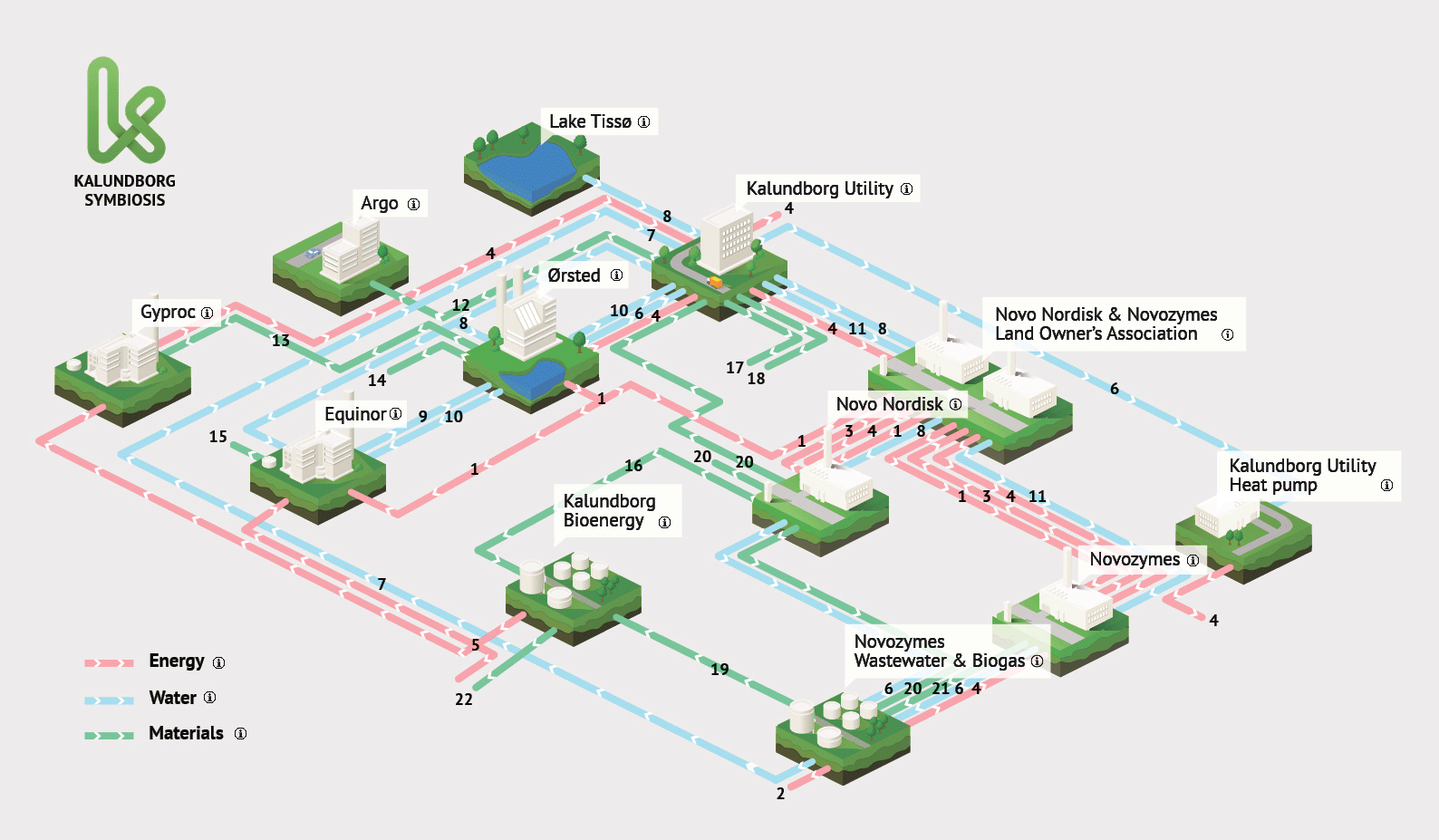The CEO and employee of SPCleantech in Copenhagen, Martin met on 28th August, 2019 in Kalundborg, Denmark with the management of the municipality of Kalundborg and the Danish Symbiosis Center, Lisbeth Randers, director of Development and Projects, director of the Center, Per Møller and Tage Riskjær Svendsen responsible for the economic development of the municipality of Kalundborg. During the meeting, participants discussed the possibilities of cooperation covering topics of industrial symbiosis and circular economy (GOZ). They talked about joint applications for EU funds under various EU programs aimed at developing the circular economy.
In the Danish town of Kalundborg, a number of industrial companies exchange waste and resources with each other in an elaborate network of pipelines. The cooperation is known as ”Kalundborg Symbiosis”.
Among the participants are a refinery, a power plant, an enzyme producer, a producer of insulin, and a manufacturer of gypsum board.
These companies send waste from their production process on to other companies in the system, which can then use this as valuable input for their process. Steam, sludge, fly ash or hot water are some of the resources exchanged.
Kalundborg symbiosis is one of the clearest examples of a circular economy, which minimizes waste and re-uses resources in a system, which in many respects resembles a metabolism – or an eco-system of very diverse participants.
An answer to a shared challange
Increasing raw material prices and turbulence in world markets are not the only shared challenges that industrial symbioses can counteract. When other global challenges, such as climate impact and lack of resources, require collaboration and shared solutions, one can understand why the UN, the EU and the OECD have also seen the light and are working with the fostering of industrial symbioses.
Something for everyone
The work at Symbiosis Center Denmark does not merely involve the promotion of symbioses in large, heavy industries. There is a great pent-up potential in small and medium-sized companies, where job creation occurs to a great degree. In particular, the Residue to Resource project is focused on realising direct, measurable benefits for small and medium-sized companies.







